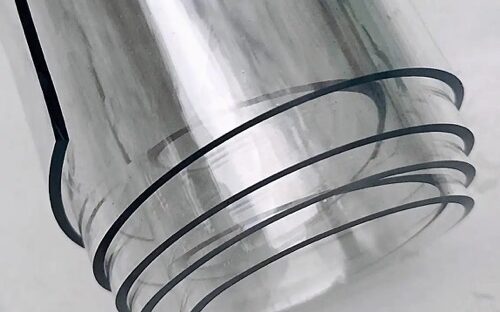Flexible plastics—such as plastic tablecloths, flexible water pipes, soft films, wires, and cables—represent a category of polymer materials that undergo frequent bending, stretching, and mechanical deformation during use. These conditions create unique performance requirements for whitening additives, making the selection of an optical brightener for flexible plastics a technical decision rather than a simple additive choice.
This article provides a detailed look at compatibility, exudation resistance, and weather stability to help manufacturers choose the most suitable optical brightener for various flexible plastic applications.
1. Why Flexible Plastics Require Specialised Optical Brighteners
Unlike rigid plastics, flexible plastics rely on plasticisers to maintain softness and elasticity. However, these plasticisers also increase the risk of migration (exudation) of additives, including optical brighteners.
Poorly compatible brighteners may exist in the polymer matrix as undispersed solid particles. When the material is squeezed, bent, or kneaded, these particles can migrate to the surface, leading to:
- Surface blooming
- Whitening spots
- Uneven appearance
- Performance deterioration
Therefore, the most critical property of an optical brightener for flexible plastics is excellent compatibility, ensuring the brightener remains well-dispersed and locked within the polymer phase.
2. Key Selection Criteria for Optical Brighteners in Flexible Plastics
2.1 Compatibility & Exudation Resistance
High compatibility ensures the brightener dissolves uniformly within the polymer, preventing surface migration.
Both optical brightener OB and optical brightener 127 are known for exceptional compatibility and are widely used not only in plastics but also in inks, coatings, and masterbatch formulations.
2.2 Weather Resistance
Different applications require different levels of durability:
- Outdoor or long-term use: flexible pipes, cable sheathing, tarp films
- Short-term or disposable use: supermarket bags, packaging films
For applications needing UV stability, non-yellowing performance, and long-term brightness, weather resistance becomes a crucial differentiator.
2.3 Whiteness & Brightening Efficiency
While whitening power is a fundamental function of optical brighteners, performance varies by chemical structure.
Optical brightener 127 typically delivers slightly higher initial whiteness than OB, making it ideal for products where visual impact is key.
3. OB vs. 127: Which Optical Brightener Is Best for Flexible Plastics?
Based on compatibility, weatherability, and processing performance, the recommended options are:
3.1 Optical Brightener OB – Best for Weather-Resistant Flexible Plastics
Ideal for:
- Flexible PVC water pipes
- Outdoor films
- Cable sheathing
- Long-term-use soft plastics
Advantages:
- Excellent UV stability
- Superior non-yellowing performance
- Good thermal stability
- High compatibility with plasticisers
OB is the preferred optical brightener for flexible plastics requiring durability and resistance to environmental degradation.
3.2 Optical Brightener 127 – Best for Disposable Flexible Plastic Products
Ideal for:
- Plastic bags
- Disposable packaging films
- Single-use soft plastics
Advantages:
- Higher initial whiteness than OB
- Outstanding compatibility and dispersion
- Cost-effective for high-volume disposable products
The primary trade-off is that 127 has lower weather resistance than OB, making it less suitable for long-term or outdoor applications.
4. Final Recommendation
The optimal optical brightener for flexible plastics depends on the product’s intended use:
- For long-term, weather-resistant, and outdoor applications:
➜ Choose Optical Brightener OB - For disposable flexible plastic products with high whiteness requirements:
➜ Choose Optical Brightener 127
Both options provide excellent compatibility—crucial for flexible materials—ensuring no blooming, exudation, or loss of brightness during use.
If you need formulation suggestions or product guidance, Grand Chemical is always here to assist with technical support and customised solutions.

